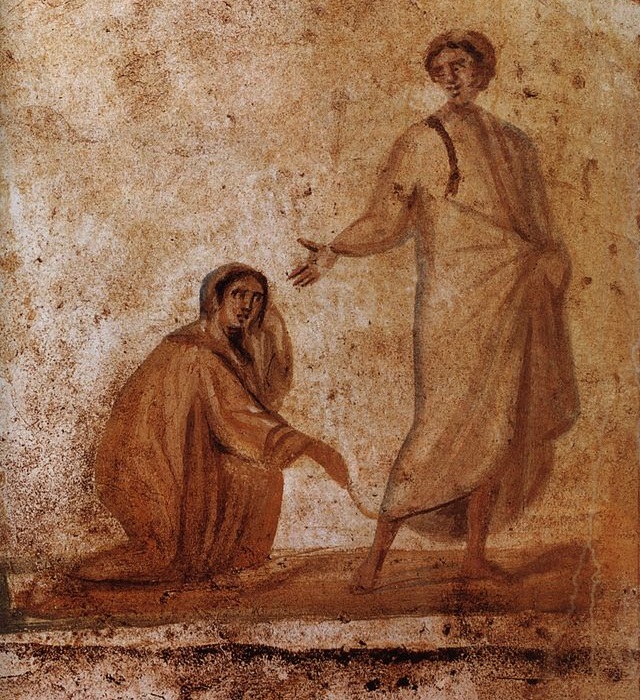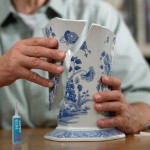
The miracle of the loaves and fishes is one of the ones that I’d heard before I ever considered becoming Catholic. But I’d always heard about it in isolation, as just one in a series of extraordinary (but interchangeable) events. This past Sunday, the story came up in the Gospel reading, but, this time, the story started a little earlier than I expected, which gave me some additional context:
When Jesus heard of the death of John the Baptist,
he withdrew in a boat to a deserted place by himself.
The crowds heard of this and followed him on foot from their towns.
When he disembarked and saw the vast crowd,
his heart was moved with pity for them, and he cured their sick.
When it was evening, the disciples approached him and said,
“This is a deserted place and it is already late;
dismiss the crowds so that they can go to the villages
and buy food for themselves.” … [Matthew 14:8-15]
I hadn’t realized that Jesus had withdrawn to a distant place for any other reason but to set up the conditions for the miracles. I had never guessed it could be a retreat, in order to mourn. When he is interrupted, his private mourning becomes an act of public generosity, as the needs of the crowd move him to act.
Now, that I had more of the story, this miracle reminded me of another one: that of the hemorraging woman:
As he went, the crowds pressed in on him. Now there was a woman who had been suffering from hemorrhages for twelve years; and though she had spent all she had on physicians, no one could cure her. She came up behind him and touched the fringe of his clothes, and immediately her hemorrhage stopped. Then Jesus asked, “Who touched me?” When all denied it, Peter said, “Master, the crowds surround you and press in on you.” But Jesus said, “Someone touched me; for I noticed that power had gone out from me.” When the woman saw that she could not remain hidden, she came trembling; and falling down before him, she declared in the presence of all the people why she had touched him, and how she had been immediately healed. He said to her, “Daughter, your faith has made you well; go in peace.” [Luke 8:42-48]
In both stories, the need of others draws out grace from Christ. In one story, he salves the ordinary needs of the body, and, in the other, he mends the extraordinary needs of one. In neither story was this particular act of healing his primary reason for being where he is (the healing of the hemorrhaging woman happens in the middle of Christ’s trip to visit a sick child). But, instead of being an interruption or a distraction, each outflowing of grace melds, well, gracefully with his present course of action.
These two stories offer hope to us, to help us not be too resistant to the needs of others. An interruption isn’t always a shattering of the work already being done. And they give us more reason to ask for help ourselves, to give our friends the opportunity for generosity and to channel grace.












